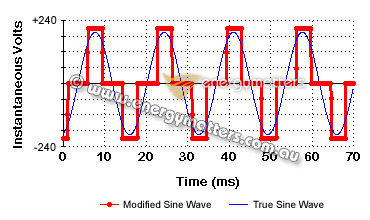NoInverter
Member
- Joined
- Apr 23, 2016
- Messages
- 5
My dream of charging up the i3 from the solar panels has been dashed. Here's the problem: Most inverters though labeled sine wave inverters do not produce a wave form close enough to the one produced by the utility companies. I have Xantrex inverters SW 4048 purchased in 2006. So the charge panel on the cable provided by BMW for 120 volts reads "power fault. My inverters run everything in the house-tvs, microwave ovens, electronic gear and so forth. Why is it necessary that the car have that perfect of sine waves?
Think about how simple it is to charge up a battery with a charger bought at WalMart. When I bought the car I told the sales Person that I intended to charge up from a solar panel setup. Does not denying that constitute misrepresentation. Somewhere in the BMWi3 hoopla was a section labeled Green Energy or similar. There it talked about charging up from solar panels.
Think about how simple it is to charge up a battery with a charger bought at WalMart. When I bought the car I told the sales Person that I intended to charge up from a solar panel setup. Does not denying that constitute misrepresentation. Somewhere in the BMWi3 hoopla was a section labeled Green Energy or similar. There it talked about charging up from solar panels.






























![300W Car Power Inverter 12V to 110V,PiSFAU DC to AC Car Plug Adapter Outlet with Multi USB[24W USB-C] /USB-Fast Charger(24W) Car Inverter,Car Charger for Laptop Vehicles Road Trip Essentials](https://m.media-amazon.com/images/I/41-KedJShYL._SL500_.jpg)

















